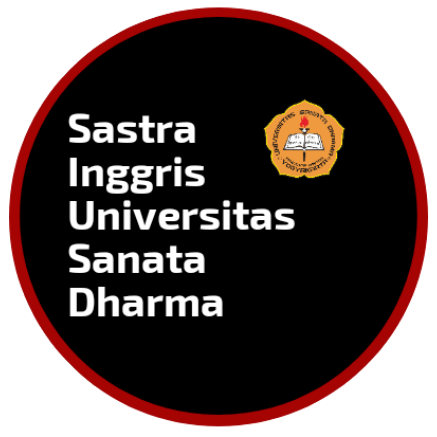News
The 23rd Anniversary of Faculty of Letters: Memartabatkan Anak Indonesia
The seminar featured four speakers. The main speaker was Erlinda Iswanto, M.Pd, the commissioner of KPAI (Indonesian Child Protection Commission). She delivered a presentation entitled “Upaya Peningkatan Pendidikan Anak dari Bahaya Kekerasan, Pelecahan, dan Eksploitasi”. Generally, her main concerns was the multiple threats facing Indonesia’s youth such as pornography, abortion, sexual diseases, incest, and raping. At the end of her presentation, she introduced an android application launched by KPAI called Pandawa Care. It can be downloaded from www.pandawa-care.com. This application is intended to help Indonesian people on any problem related to children.
|
The second speaker was Sony Christian Sudarsono, a lecturer from the Indonesian Letters Department. He delivered a paper entitled “Prinsip Kasih Sayang: Prinsip Berbahasa yang Memartabatkan Anak”. It deals with the problem of frequent difficulties of communication between parents’ and their children. To solve this, Sudarsono offered the so called “affection principle”, a pragmatics concept specially designed for parents communication with their children. This new concept is a combination of the existing principles in pragmatics, namely cooperative principle, politeness principle, and compassion principle. |
|
|
The third speaker is Fransisca Kristanti, a lecturer from the English Letters Department. She delivered a paper titled “Dignifying Children through Inclusive Children’s Literature”. She located the source of intolerance for disabled children in the rareness of encounter between the general public and them. Therefore, to foster tolerance, the general public must be familiarized with such children. One way, she argued, is through proliferating children literature portraying disabled children as a natural part of society. She ended her presentation by surveying many children literature from around the world as she noted that Indonesian literature is quite barren of such “inclusive children literature”. |
|
The final speaker is Heri Priyatmoko, a junior lecturer from the History Department. He presented a paper entitled “Menempa Bocah Mangkunegaran: Studi Historis Kepanduan Anak Jawa”. It was an attempt to retrace the history of children in Indonesian history. For a long time children were under-represented in Indonesian historiography. Responding to this, Priyatmoko revisited old documents from Arsip Reksapustaka Mangkunegaran to search for historical evidence of Indonesian—specifically Javanese—children history. In the end he came up with the story of children joining “Kepanduan”, a colonial scot-like youth organization in Java. |
Approaching the end of the day, the master of ceremony, Risang Baskara, invited a special guest, Grace Malia Kristanto, to share her experience. For about 15 minutes Grace talks cheerfully in front of the floor. Following was the question and answer session for the speakers.
|
|
The venue was closed by 14.00 with a sumptuous lunch for the whole participants of the seminar in front of the Auditorium (mdirga)
|
|
|
|
|
|
|
|
back
- Dedication and Compassion: The Story of "Mbak Ninik" at Universitas Sanata Dharma
- English Letters Department Universitas Sanata Dharma Participates in the Faculty of Letters’ 31st Anniversary Holy Mass
- Alumni Spotlight: Agathon Hutama Nurturing Universitas Sanata Dharma's Theater Club – Alumni Give Back
- Faculty of Letters USD Announces Poetry Writing Competition: Leadership, Social Justice & Ecological Justice
- Student Committee Meets Up for "ELEVEN" – An English Letters Events and Competitions
- Recording Session Sets the Stage for "Dear Yesterday" - An Original Musical Drama by English Letters Students
- Three Lecturers from Sastra Inggris USD Earn Their PhDs
- English Debate Society (EDS) held an English Debate Training in SMA Harapan Bangsa Balikpapan
- SMM Hosts Movie Watching and Discussion Event: Exploring "Terimalah Laguku" (Djadoeg Djajakusuma, 1952)
- ELMO showcased their skills at Dua Arah Coffee Shop
- INTEGRITY Empowers Aspiring Student Journalists with a Journalism Workshop
- "Sastra Gives Back" Membantu Anak Berkebutuhan Khusus di Yayasan Sayap Ibu Kaliurang
- English Letters Department Delegate in Asian World Model United Nation VI, Thailand
- The New English Letters Student Association Cabinet (2023-2024) is Ready to Serve
- Daily English for Kids at Rumah Budaya Kratonan Solo
- Sastra Gives Back 2022: As Enjoyable As The Summer
- Sastra Gives Back 2022, Providing Learning Assistance And Creating Memorable Experiences
- Internship Story: Marketing Support Intern at Grab (Atthalla Syalsabhila)
- Internship Story: Sales and Marketing Intern at Teorra Singapore (Lalita Tandayu)
- Internship Story: English Translator at Kalbe (Delphinia Rachel G. C)
